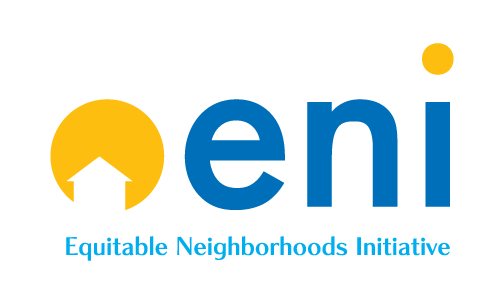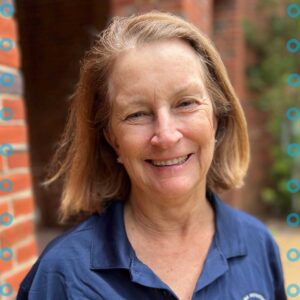May 1, 2023
– By Debbie Quinn –
First aid, or the emergency care needed when a person is injured or ill until full medical treatment is available, is commonly accepted as necessary. Most people have either used or watched someone use first aid. Perhaps it was placing pressure on a bleeding injury, patting someone on the back when they choke or providing CPR to the beat of the Bee Gees’ 1977 hit “Stayin’ Alive.” Physical First Aid is practical, is used every day and saves lives.
But physical first aid is not the only important and life-saving care available. In 2001, nurse Betty Kitchener and mental health literacy professor Anthony Jorm realized there was a missing link in emergency care and thus was born the Mental Health First Aid training.
Sharing lived experiences and having that opportunity to feel heard gives you an opportunity to assess signs and symptoms and help someone get the help they need.
Danny Patterson, ENI Regional Director
Like physical first aid, MHFA focuses on training people to act in emergencies to identify, understand and respond to signs of mental illnesses and substance use disorders.
“Mental Health First Aid should be just as important to learn and know when someone needs help,” said ENI Regional Director Danny Patterson, who has been teaching the course for the past two years. He feels that taking the Mental Health First Aid course will make people better listeners. “Sharing lived experiences and having that opportunity to feel heard gives you an opportunity to assess signs and symptoms and help someone get the help they need.”
Danny has a lot in common with Lady Gaga. Well, in their opinions of Mental Health First Aid, that is. Lady GaGa is a big proponent of MHFA and has supported an MHFA program in over 20 high schools. She believes that mental health is a medical condition and should be treated just like one. Lady Gaga has been seeing a mental health professional for PTSD (post-traumatic stress disorder) from an incident that occurred to her when she was 19.
“There is a lot of shame attached to mental illness, but it’s important that you know that there is hope and a chance for recovery,” said Gaga in an open letter on the Born This Way Foundation’s website. She uses the “Little Monsters” name for her fans because she wants them to know “to not judge themselves, to not hate themselves.”
There are Mental Health First Aid classes for adults and youth. The course lasts for about 8 hours and covers topics like depression and mood disorders, anxiety disorders, trauma, psychosis, and substance use disorders. The course takes an approach that emphasizes recovery and resiliency, or the belief that individuals experiencing these challenges can and do get better and use their strengths to stay well.
In the video below, Dr. Jessica Hoggle, Mental Health First Aid Educator in the School of Social Work at The University of Alabama, provides an overview of mental health first aid. Dr. Hoggle also shares a summary of what’s covered in mental health first aid courses and how to access training opportunities.
The course gives participants the tools needed to help determine if somebody needs mental health care, not to provide mental health care. Instructors teach with the idea that helping to get someone the needed care early will provide faster treatment.
There are separate classes for youth aged 12-18, much like what Lady Gaga is supporting. Adolescents are a unique group that needs different avenues to encourage discussion, group dynamics and the importance of early intervention.
All ENI advisory group members are going through the MHFA course. The course is also open to first responders, members of the youth community councils, and community members interested in taking the course.
Mental Health First Aid Training is full of interaction and group work




ENI Community Liaison for the Ma-Chis Lower Creek Indian Tribe of Alabama Nancy Carnley is also a nurse. When Nancy went through the training, she said it gave her better ways to talk to someone about personal issues and that the class experience was a way to hear and learn from others’ experiences. “The class also gave ideas of the types of services out there and could help me refer someone to them.”
Lois Gwinn, the Equity Administrator for Mobile County Public Health, also took the MHFA course. She realized through taking the class that labeling people doesn’t define who they are and what they are going through. She also thought that learning about the 988 Suicide National Help Line was extra helpful and something concrete. This is a particularly helpful resource, because suicide is the second leading cause of death for people ages 10-14 and 25-34, according to the CDC.
Khiaw Srihanouvong, an ENI Community Volunteer from Coden, is a community assistance coordinator for the Lao and Cambodian communities in his area. Khiaw has asked people to let him help those who appeared to need mental health resources. It’s still difficult for his community to open up given the persistent stigma surrounding mental health in Asian communities. Khiaw possessing that awareness and the resources that are available and easily found is a benefit to his community.
It takes a while for people who have been long closed off to open up to others and discuss something they’ve either made an excuse for or have ignored. But knowing what to look for and how to discuss it with others is the first start… just like putting pressure on a wound.


